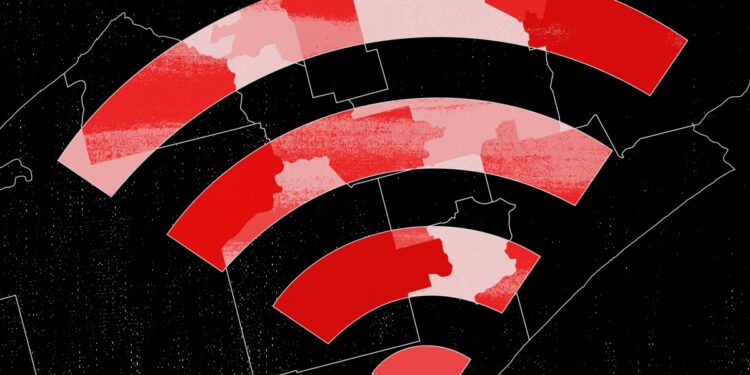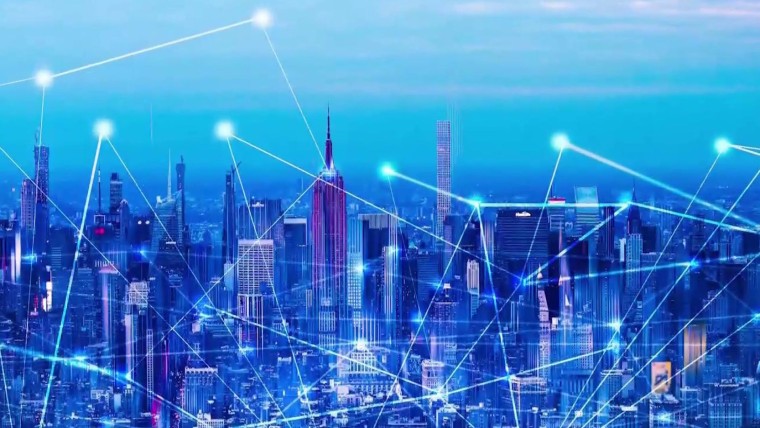[ad_1]
An explosive report from nonprofit journalism outlet The Markup analyzed knowledge on web speeds and pricing in 38 U.S. cities and located that AT&T, Verizon, EarthLink and CenturyLink all disproportionately supplied lower-income and less-white neighborhoods slower web for a similar worth that close by whiter, wealthier neighborhoods paid for sooner speeds. Discriminating in opposition to these communities by charging them extra for the web is digital redlining, and it’s one more instance of the know-how and telecommunications trade’s skill to entrench and amplify social inequities.
The pandemic has proven us how completely vital web entry is, particularly for already susceptible communities.
The pandemic has proven us how completely vital web entry is, particularly for already susceptible communities, and the federal government must step up and do extra to remove the digital divide and to stop and clear up for the harms of digital discrimination. The Federal Communications Fee is the company finest poised to create and implement guidelines on this matter, and the company promised to look into this precise challenge earlier this yr.
Traditionally, redlining refers to a now-illegal observe wherein banks would refuse mortgages to poor areas or areas with extra Black or brown folks. Digital redlining is a more moderen, technologically pushed type of discrimination that leads to firms offering higher companies to folks with extra wealth or who reside in whiter areas. The Markup’s report discovered that the telecom firms had been participating in discriminatory practices that truly mapped fairly intently to historic redlining.
In keeping with The Markup’s report, “Not one of the suppliers denied charging the identical payment for vastly completely different web speeds to completely different neighborhoods in the identical cities. However they mentioned their intentions had been to not discriminate in opposition to communities of coloration and that there have been different elements to think about.”
On behalf of Verizon, the trade group USTelecom informed The Markup that the tools for slower-speed web comes with increased upkeep prices. With out elaboration, a spokesperson for CenturyLink’s mum or dad firm known as the report “deeply flawed.” EarthLink, which doesn’t personal web infrastructure within the examined cities however moderately rents capability from different suppliers, didn’t present an official remark regardless of repeated requests. An AT&T spokesman known as the evaluation “essentially flawed” as a result of, he mentioned, the publication “clearly ignored our participation within the federal Inexpensive Connectivity Program and our low-cost Entry by AT&T service choices.” The Markup reported that solely a couple of third of eligible households in 30 main cities had signed up for the federal connectivity program, in accordance with current analysis, and that almost all who’ve signed up use it to decrease their cellphone invoice.
Such digital redlining reveals us why clearer regulation is required for the web trade. We’d like sensible, on-the-ground insurance policies that can be certain that telecom firms give all people equal entry. Whereas the Biden administration has taken steps to work on this challenge, extra must be accomplished.
This controversy is one other reminder that we want commonsense laws to guard in opposition to digital discrimination within the telecom trade and within the tech trade as an entire. In February, FCC Chairwoman Jessica Rosenworcel introduced the formation of a process pressure to sort out digital discrimination, and the fee has initiated an inquiry into the issue of the way it can finest forestall digital discrimination. The intent is to launch new rule-making beneath the authorized authority of the 2021 infrastructure invoice. This could enable the FCC to create a brand new regulation that will goal digital discrimination.
This controversy is one other reminder that we want commonsense laws to guard in opposition to digital discrimination within the telecom trade and within the tech trade as an entire.
Whereas it’s a optimistic that the FCC is taking cost to repair this drawback, the company’s efforts have arguably been hampered by the truth that the company continues to be working with out its full variety of commissioners. Republicans have refused to verify Gigi Sohn, whom President Joe Biden first nominated to fill the fifth FCC commissioner slot a couple of yr in the past. Sohn is a well known knowledgeable in know-how and communications coverage, and about 250 civil society teams not too long ago signed onto a letter supporting her affirmation. It’s far past time to resolve partisan variations and make sure Sohn’s nomination.
The web is just not a passing fad or a brand new stylish know-how. The web is a basic a part of all of our lives. We’d like the web for work, for schooling, for entry to well being and authorities companies, for leisure, for social connection and extra. The web is just not solely very important without cost speech and expression, however additionally it is an integral software to permit all people to take part in constructing our democratic tradition collectively.
Given the rising significance of the web, digital discrimination isn’t just a minor enterprise drawback that may be simply forgotten or smoothed over. We’d like sensible, tangible regulation that can even have chew. It’s vital that Congress transfer previous lobbyist gridlock to verify Sohn. This could give the FCC some much-needed momentum to form and implement new laws to guard all of our rights.
Digital discrimination is a civil rights violation and must be handled as such. Till the day comes that we do have robust legal guidelines that defend web entry as a civil proper, we might want to proceed talking up and shedding mild on discrimination and inequity. All of us deserve entry to the web; traditionally uncared for communities shouldn’t be priced out or take care of the indignity of seeing traditionally advantaged communities pay much less.
[ad_2]
Source link










